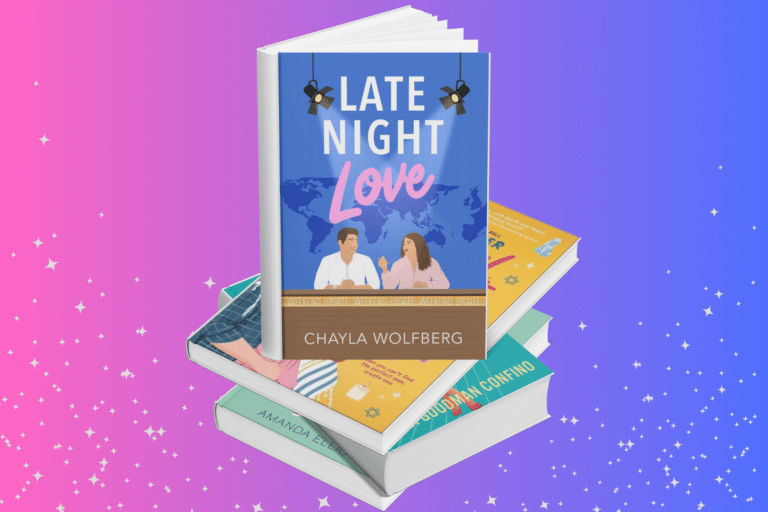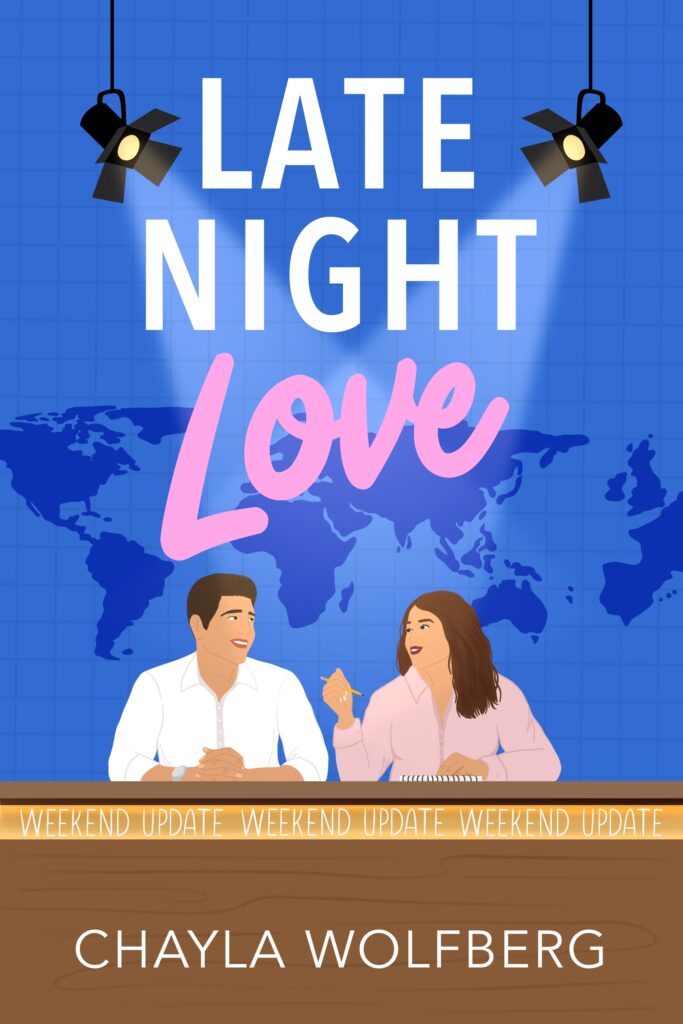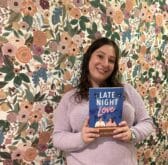
This article is part of Unpacked’s Gen Z Voices series, which highlights our readers’ experiences on campus or as recent graduates, cultural commentaries, and reflections on what it means to be Jewish today. Learn how to submit here.
Before I started writing this, I received a package from Jean Meltzer.
For those who don’t know her, Jean is the queen of Jewish romance. Her books did something revolutionary: They created love stories not just featuring characters with vaguely Jewish-sounding names or characters who made offhand mentions of a Shabbat dinner, but for whom Judaism was at the core of their identity. These very Jewish characters don’t get saved by non-Jews, they don’t die in the end. Instead, they experience joy. They do what all romance characters do, which is live happily ever after.
Read more: Jewish romance writers break down their latest novels and why we need more Jewish stories
Growing up, I was a voracious reader, but I rarely saw Jewish characters in books that weren’t about the Holocaust. A “Jewish” book seemed to implicitly mean one that was about our trauma. As I grew older and eventually discovered romance novels, I noticed this same trend. When I began writing my own book, I didn’t choose to make my main character Jewish as some kind of statement. I did it because I put so much of myself and my experience into that character, and because my sense of humor is deeply Jewish.

“Late Night Love” is a story about Emily Beckerman, a successful sketch writer on a late-night comedy show. Emily’s relationship to comedy is, like my own, inextricable from her Jewish identity. Early in the book, I describe Emily using a job as a fundraiser for a Jewish organization as an opportunity to practice her jokes on the donors she calls. She attends Shabbat dinners with her family and writes Jewish jokes when she is eventually promoted to a Weekend Update anchor. The last scene in the book takes place just before Rosh Hashanah services begin.
Writing a Jewish romance novel
In looking back on my work, I realized that I only used the word “Jewish” in my book 14 times (if we expand that to include the word Jew, that bumps me up to lucky 18, or chai). But just because Judaism isn’t explicitly on the page in every scene doesn’t mean my book is any less Jewish.
To paraphrase something one of my favorite comedians, Nick Kroll, said on an episode of the “Conan O’Brien Needs a Friend” podcast, “I’m not sure which came first, the desire to be in comedy or the desire to hang out with Jews.” Nick said this in response to Conan mentioning that throughout his life, many of his friends have been Jewish. Considering that our people are a scant 0.2% of the world’s population, it usually takes special effort to surround yourself with Jews. It’s why so many Jewish people gravitate towards areas with large Jewish populations. We have Jewish youth groups, summer camps, fraternities and sororities — I participated in all three myself.
To be a Jew alone in the world is often to be a Jew in danger. To quote another iconic Jew, my best friend Sydney’s mother Elissa Geier, “You don’t have to marry someone Jewish, but it is easier.” Why do Jews so often choose to spend time with other Jews? Because it is easy. We don’t have to worry about microaggressions or being asked to prove our Jewishness — or in the wake of Oct. 7, our “Good Jew” status, which usually means rejecting Zionism. We share values, foods, experiences, and senses of humor.
Community is central to romance novels. In my journey toward publishing my own, I discovered this tight-knit community and felt an overwhelming sense of joy.

And then Oct. 7 happened, and everything changed.
Jewish joy after Oct. 7
October was a difficult month for every Jew. I witnessed the silence of friends as I mourned the most horrific, widespread massacre of Jews since the Holocaust. I witnessed the silence of authors and bookstagrammers I followed who claimed to speak for social justice yet had nothing to say about one of the darkest days for the Jewish people in recent memory. The book agents I had been working with for a year and a half finally got back to me about the latest draft of “Late Night Love,” with heartbreaking news: They did not think my book was good enough to sell, and they didn’t know how to fix it.
I spent the weeks after Oct. 7 at a very slow temp job, scrolling through Instagram and spiraling. Jean’s posts were one of the only bright lights. And through Jean, I discovered Jewish bookstagram. Here was the community I had been so desperate for: writers and readers passionate about Jewish representation and Jewish stories, who spoke up loudly for our people in the same way that I did.
Read more: Unpacked’s top book picks for 2024
I joined a Facebook group called Jewish Women Talk About Romance Books founded by Jean, and multiple other Jewish romance novels. It was discovering the writers and this community, and devouring the Jewish romance novels that they wrote and recommended, that gave me the courage to self-publish “Late Night Love.”

My novel begins with a heroine who feels alone. Falling in love is a large part of her story, but so is her journey toward community. Emily’s love interest and the other writers and actors on Live From New York, the show she works for, accept her for exactly who she is: a loudmouthed, curvy Jewish girl with a big heart and a lot of opinions. It’s a journey I can relate to, even though I discovered that Jewish romance community after I finished writing. Self-publishing my book has not been an entirely easy process though it has been one of the most challenging and rewarding things I’ve ever done. But it would have felt impossible without the support of the Jewish book community. I owe them so much as a writer, a reader, and a human being. Being a proud Jewish romance author has brought me so many new friends, in addition to an ever-expanding list of books to read. I would never have found this community that means so much to me if the darkness of Oct. 7 had not left me desperately searching for light.
I read romance for that same reason. In romance, characters must face the darkest parts of themselves and confront their own emotional turmoil before finding their happily ever after. One of the silliest criticisms I’ve heard of the genre is that it is repetitive, because every book involves a love story and a happy ending. Anyone who has actually read romance knows that it is anything but. Each journey is unique because each person is unique. I write romance because that is my favorite story to tell. I love messy, complicated characters who make mistakes. I think as humans, we are all searching for connection. And as Jews, that connection and community is what has enabled us to survive centuries of exile and persecution.
“Late Night Love” is deeply personal to me not only because of the story itself, but for what it has brought me. It is the first book of my career but surely not the last. I’m sure that my future works will all interact with Judaism in different ways, but I will never be able to write a book that has absolutely nothing to do with Judaism because being Jewish has made me the person that I am. I will never downplay the importance of my Judaism in my identity or that of my characters because I cannot.
In a year of tragedy for the Jewish people, I still believe that Jewish joy is in our future. My greatest hope is that one day, a “Jewish” book will not immediately bring to mind a story about tragedy, but one about triumph. With a happy ending, where no Jewish person dies at the end.


